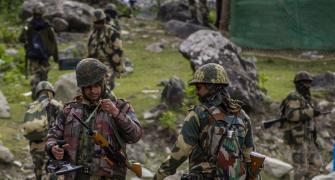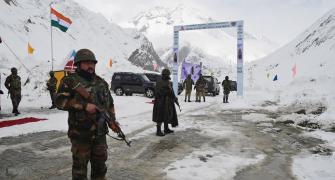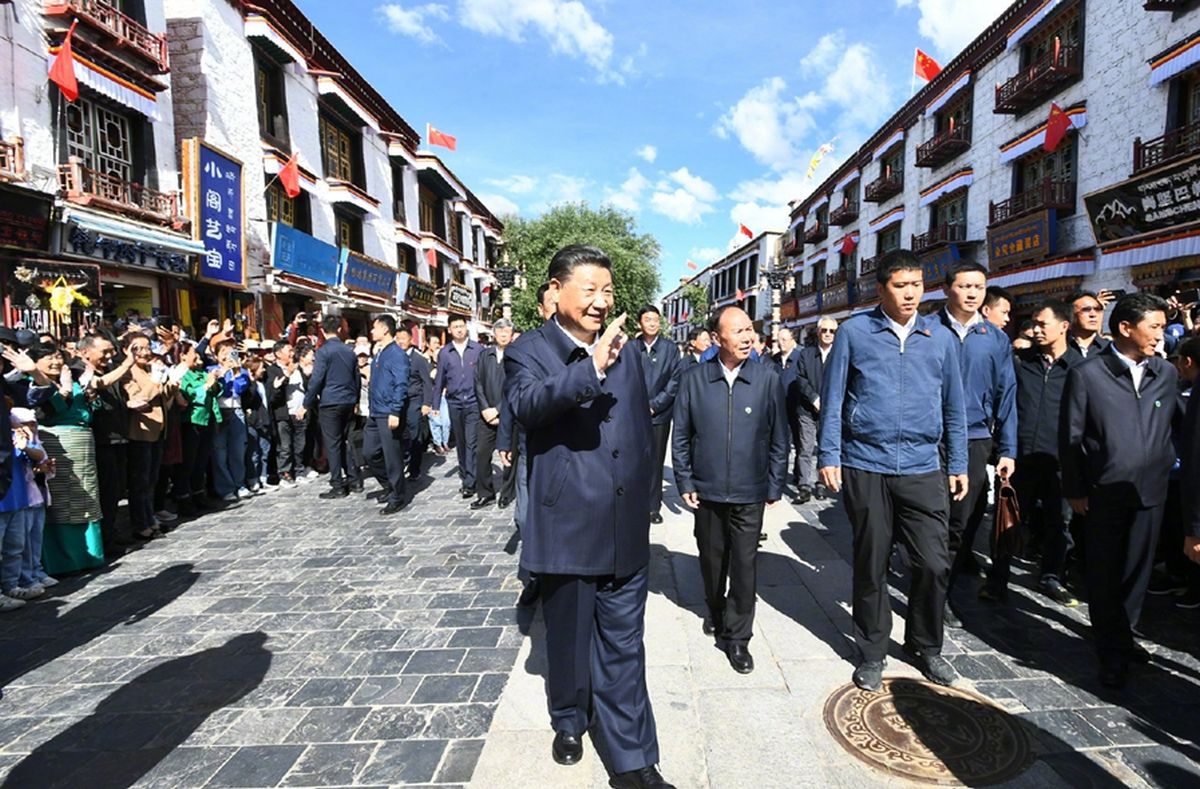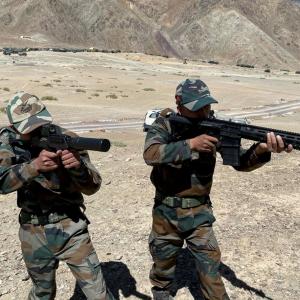'We should not allow ourselves to be surprised in any manner in future on the border.'
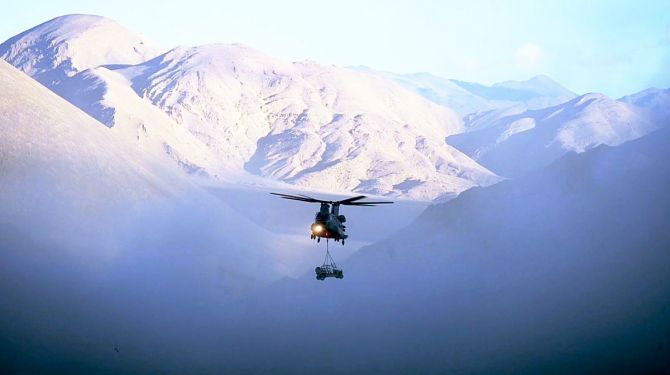
"We can't have faith on the Chinese. They have infringed previous treaties and can infringe the buffers zones in eastern Ladakh.
"We have to watch the buffers very carefully," says Lieutenant General Rakesh Sharma, PVSM, UYSM, AVSM, VSM (retired) and former commander of the Fire and Fury Corps responsible for Kargil, Siachen Glacier and Eastern Ladakh.
"We must put tremendous pressure on China to de-escalate and de-induct," he says in the concluding part of the interview to Rediff.com's Archana Masih.
You have written in an article that China has negotiated a benign and relatively peaceful border while de-escalation and de-induction does not seem to be on the cards. Can you please elaborate on that thought?
If the Chinese want to de-induct and de-escalate, why should they create so much habitat - cantonments, heliports, airfields etc? All this doesn't seem to give an impression that they are de-escalating.
We must put tremendous pressure on China to de-escalate and de-induct.
The reason I say a benign border is because in the last 10-12 years, there were incidents of fisticuffs and scuffles in various areas, for example, Raki Nala or Pangong Tso, Chumar, Demchok; it has also happened in Sikkim and Arunachal Pradesh.
In Eastern Ladakh, at least, the border has acquired a benign nature because there are buffers extending from two-six kilometers that separate Indian and PLA troops. There will be no patrolling in these zones which has prevented the possibility of scuffles.
Therefore, the border which was more active and relatively hot has been made more benign by the buffer zones.
Knowing fully well from their past actions that the Chinese cannot be trusted, what is the surety that these buffer zones will be maintained and that the PLA will not cross over?
I absolutely agree with you. This is the biggest anxiety. There is a total lack of trust. We signed six agreements with China and had established protocols about how patrols would disengage and that additional troops would not be inducted up to a given distance etc, but all that failed two-and-a-half years ago.
China suddenly turned the whole table.
Mao Ning, the Chinese foreign ministry spokesperson, has said that the status quo is not acceptable to them. They are putting us under some kind of anxiety and therefore, we have to be cautious that despite these buffers, the pressure on India remains.
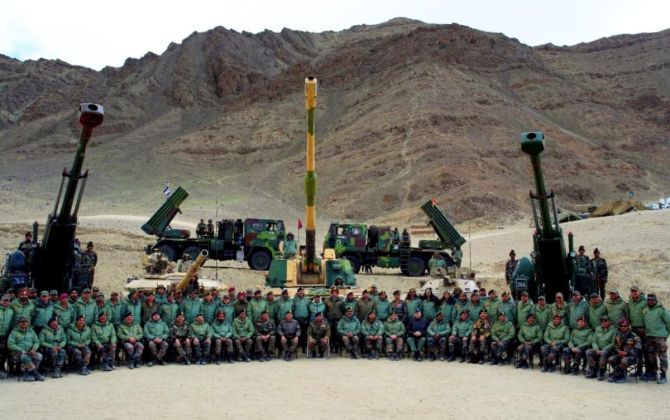
What according to you is the way forward for India as far as China is concerned in the background of the Ladakh standoff over the past two-and-half-years?
If we consider that this is for the long haul, then our negotiation must ensure that the buffer zones are not pushed across to the Central Sector and the North East. We must deny the possibility in points where the Chinese have been pin pricking in Uttarakhand, Sikkim or Arunachal Pradesh.
Secondly, we have to pragmatically examine the maximum or minimum quantum of force required for an adverse situation if it happens. There is a loss of trust and there is anxiety about the Chinese, but we can't push too many troops there because the Indian Army has other commitments also.
Thirdly, now that disengagement has been done by the Chinese to some kind of advantage, we have to start talking about de-escalation. The Chinese should now de-induct from these areas.
Since the buffer zones have segregated both the troops, why is China retaining the forces it brought from Kashgar, Hotan etc? Why isn't China de-escalating and de-inducting from Eastern Ladakh and elsewhere?
They must go back!
If China doesn't do that, then it has the intention of putting us under pressure. We should apply pressure to resolve the Line of Actual Control because the buffer zones will not last too long and is not a very safe proposition.
There is an increased importance of China's Western Theatre Command. Therefore, China has to be told at the politico-diplomatic level to de-escalate and de-induct.
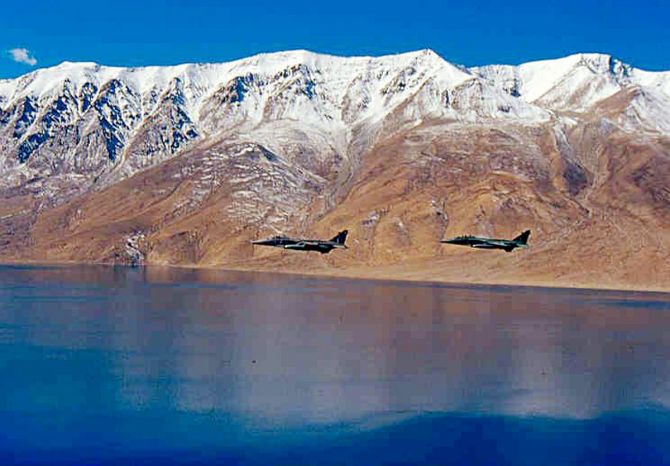
What are the top two or three things that India should be doing aggressively to pressurise China?
Like I mentioned, since we have a trust deficit, we can't have faith on the Chinese. They have infringed previous treaties and can breach the buffers.
We have to watch the buffer zones very carefully.
Secondly, we must ensure that this does not happen in Uttarakhand, Sikkim and Arunachal Pradesh. We should retain our posture.
Having said that, it is important for us to maintain adequate forces. The scheme for induction of additional forces must be planned in detail and practiced so that we know when to react.
Most importantly, we have to ensure that our intelligence, surveillance and reconnaissance is top class. We should not allow ourselves to be surprised in any manner in future on the border.
Lastly, we have to study the larger intentions of China as time passes. In 5-10 years by the time of the 21st-22nd (Communist) party congress, Xi, who has total control of Chinam will endeavour to achieve something more and we have to be very cautious of that fact [pertaining to our border].
Feature Presentation: Aslam Hunani/Rediff.com

